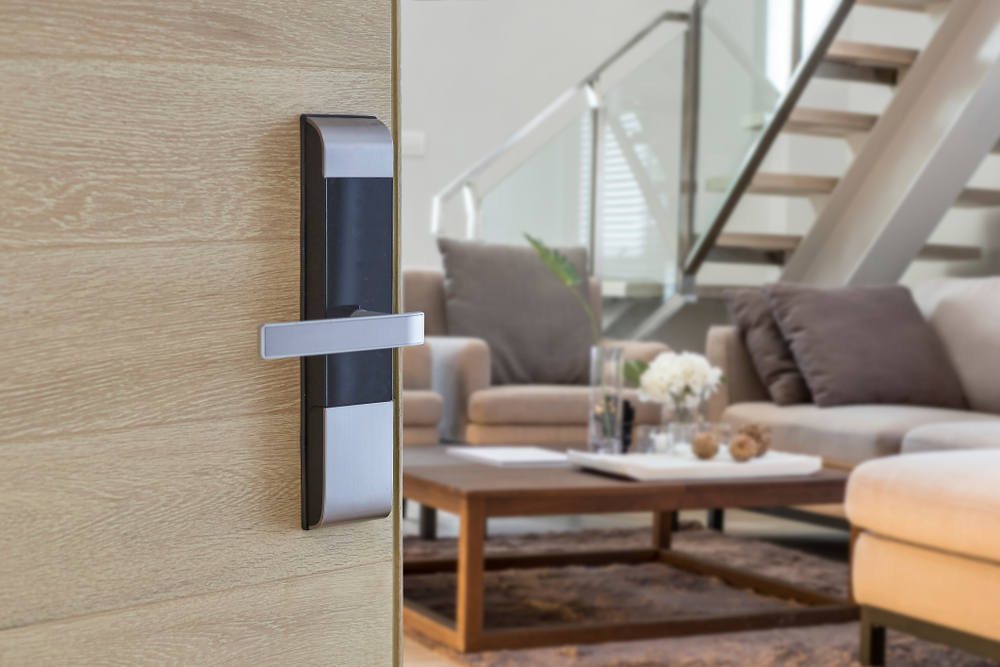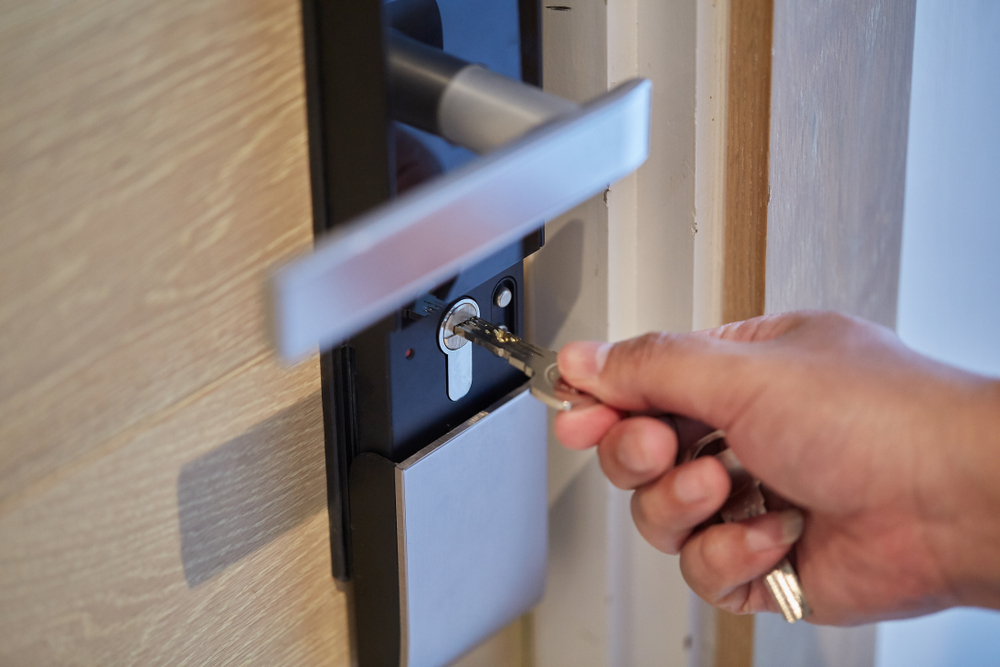Are you torn between choosing an electronic door lock and a traditional lock? Technology has advanced a lot and it has also made its mark in the lock industry.
While traditional locks have been there for thousands of years, today, you can buy modern, electronic smart locks that offer a lot more convenience and safety compared to traditional door locks.
In today’s blog post, we will explore the safety aspects of electronic door locks and traditional locks, and which one is safer and better.
Differences between Electronic Door Locks and Traditional Door Locks
The biggest difference between an electronic and traditional load lock is that you need a key for a traditional lock while electronic locks are keyless. Electronic locks make use of a keypad, QR code reader, Bluetooth connection, fingerprint scanning or face recognition or some other smart technology for unlocking the door.
These locks work differently and look a lot different. Also, some sort of power source is required for an electronic door lock whereas no power source is needed for a traditional lock.
Comparing Electronic Door Locks and Traditional Door Locks
While electronic door locks offer a number of advantages, it does not mean that traditional locks are no longer useful. Both are efficient in their own way and make a lot of sense in certain situations. Here’s what you should know about the pros and cons of each of these types.
1). Let’s consider convenience — There is no denying that electronic locks shine in terms of convenience. You don’t need to remember to carry the key. Since there is no key to enter, there is no risk of the key breaking inside the lock or worse still, losing your keys and not being able to open the lock at all!
If you are coming back from a grocery haul and both your hands are full, you don’t need to fumble to get your keys as you just need to enter the password to get the entry or you can even unlock it using your smartphone.

2). Access — If you need to give access to your home or business to others, you would have to get separate keys made up. On the other hand, you can create a separate code for these individuals with an electronic door lock.
Electronic door locks allow you a lot more control. In fact, smart locks today allow you to provide a passcode that is only active at particular times of the day. Also, you can lock and unlock locks remotely if you do not want to share a password with anyone.
3). Safety – When it comes to safety, you should understand that every lock can be picked by a professional if they are given enough time. Both electronic and traditional locks are equally safe when you buy a reputable brand.
4). Cost — When it comes to cost, traditional locks are way cheaper compared to electronic door locks but the cost of an electronic door lock depends on the kind of features you want in the system. In short, you’re paying extra for convenience.
The price difference isn’t that high when you consider the fact that a door lock isn’t something you’re going to buy every month or every year. Therefore, some extra investment is really worth the convenience as well as other features.
Final Thoughts
Overall, electronic door locks offer a lot of convenient features compared to traditional locks. When it comes to safety, there really isn’t that much difference as you will get good security with high-quality traditional locks and electronic locks. Keep in mind that most burglaries happen through an unlocked door or when criminals are able to force open a door or window.
Electronic door locks are convenient and offer a lot more features compared to traditional locks. You should buy an electronic lock for its features and not for extra safety as traditional locks are as safe as electronic locks. Casey Locksmiths offers a wide range of security solutions for residential and commercial use including traditional door locks and electronic locks.
Please call us today to learn more on 0416 161 332 or leave an enquiry.

